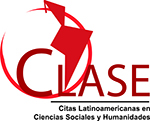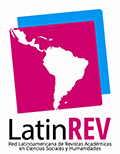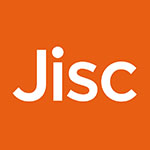Argentina and the War in Ukraine: An Approach from the Perspective of Foreign Policy of the Alberto Fernández Administration and the First Year of Javier Milei's Administration
Abstract
This article seeks to understand Argentina's position on the conflict in Ukraine as part of the foreign policy of the governments of Alberto Fernández and Javier Milei, articulating the theoretical perspective of neoclassical realism. To this end, a qualitative methodology is proposed through a case study, employing bibliographic and documentary indexing of primary and secondary sources, analyzed using content analysis, as data collection techniques. It argues that the position of both governments regarding the war as part of their foreign policy is understood based on the conditioning of two systemic variables, mediated, in turn, by the influence of two other domestic variables. More specifically, the first are the relevance of the conflict scenario, given its impact on the deterioration of the governance of international security affairs, and Argentina's ties to the states involved in the dispute. The second are the international insertion strategy implemented by the governments and the place they give to the conflict on the national agenda.
Downloads
References
Acharya, A. (1999).The periphery as the core: the third world and security studies. Centre for International and Strategic Studies. Occasional paper number 28. York University.
Anzellini, L. y Castro, S. (2012). Los Estados medianos y la arquitectura de seguridad internacional: apuntes estratégicos para el caso argentino. POSTData, 17(2), 37-85. https://surl.li/wudtnc
Asamblea de la OEA: Argentina, Brasil y México no apoyaron una declaración en repudio a la invasión de Vladimir Putin a Ucrania. (6 de octubre de 2022). Infobae. https://lc.cx/zHeydI
Así será la nueva doctrina de política exterior de Argentina. (5 de abril de 2024). El Economista. https://surl.gd/nzzeld
Ayoob, M. (1995). Subaltern realism: International relations meets the third world. En Neuman, S. G. (Ed.), International relations theory and the Third World (pp. 31-54). St. Martin Press.
Calderón, E. (2018). La defensa argentina del siglo XXI: del activismo subregional al globalismo relativo. Política y Estrategia, (131). https://surl.li/eufwnr
Calderón, E. (2022a). Conducción política de la defensa en argentina: jerarquización del sector y activismo multilateral como criterios rectores de la primera mitad del gobierno de A. Fernández. Cuadernos de Política Exterior Argentina, 135, 71-90. https://lc.cx/1uh2nC
Calderón, E. (2022b). BRICS y las chances de cooperar en torno a la seguridad internacional: un primer acercamiento. En Giaccaclia, C, Calderón, E., Marchetti, A. y Dussort, M. Soplan nuevos vientos: ¿Tiempos nuevos para BRICS? Marcos conceptuales y pujas de poder en la negociación de la agenda internacional (pp. 87-109). UNR Editora.
Dinatale, M. (23 de febrero de 2023). Lapidario mensaje de Ucrania al Gobierno por la guerra: “Debería ser más firme contra Rusia”. El Cronista. https://lc.cx/9o2dZX
Escudé, C. (1995). El realismo de los Estados débiles. Grupo Editor Latinoamericano.
Fernández Mainardi, P. (21 d septiembre de 2024). Juan Battaleme: “Llegó el momento de modernizar las Fuerzas Armadas argentinas”. Infobae. https://surli.cc/qctwmh
Frente de Todos. (2019). Plataforma Electoral. https://lc.cx/jqJL6Y
Glaser, C. (2007). Realism. En Collin, A. (Ed.), Contemporary Security Studies (pp. 13-27). Oxford University Press.
Holsti, K. (1995). International relations theory and domestic war in the Third World: The limits of relevance. En Neuman, S. G. (Ed.), International relations theory and the Third World (pp. 103-132). St. Martin Press.
Kanenguiser, M. (21 de abril de 2023). La gestión económica de Fernández: el aumento de la inflación, pobreza y deuda que no acompañaron una eventual reelección. Infobae. https://lc.cx/qDepzH.
La Argentina y un fuerte despliegue de ayuda humanitaria en Ucrania. Metrópolis. (25 de febrero de 2023). https://surl.lu/swfhdb
Lejtman, R. (5 de marzo de 2023). En plena invasión rusa a Ucrania, la diplomacia secreta de Cristina presiona para que Alberto Fernández reciba al canciller de Putin en la Casa Rosada. Infobae. https://lc.cx/HLjHrf
Lejtman, R. y Menegazzi, E. (25 de marzo de 2022). Santiago Cafiero decidió mantener al vicecanciller Tettamanti, pese a incumplir su orden de condenar a Rusia en NU. Infobae. https://lc.cx/9xqWjD
Lorenzini, M. E. (2011). La estrategia de inserción internacional de la República de Chile en el hemisferio 1990-2004 (tesis de maestría). Centro de Estudios Interdisciplinarios, Universidad Nacional de Rosario.
Ministerio de Defensa. (2021). Rossi se reunió con el jefe del Comando Sur y junto a su par Vizzotti recibió la donación de hospitales de campaña en el marco de la lucha contra la pandemia de coronavirus. https://surli.cc/kokibk
Ministerio de Defensa. (2022). Finalizó la XX Reunión del Grupo de Trabajo Bilateral en Defensa Argentina-Estados Unidos. https://lc.cx/MBt0sS
Ministerio de Defensa. (2024). Argentina se une al Ukraine Defense Contact Group para promover la paz y la estabilidad internacional. https://surl.li/hirfyn
Ministerio de Relaciones Exteriores de Rusia. (2020). Concepción de la seguridad nacional de la Federación Rusa. Decreto Presidencial N. º 24. https://acortar.link/x9l7E2
Ministerio de Relaciones Internacionales, Comercio Internacional y Culto. (2022a). Argentina reitera su “firme rechazo al uso de la fuerza armada” y llama a Rusia a cesar las acciones militares en Ucrania. Información para la Prensa N.° 095/22. https://lc.cx/Bg93eM
Ministerio de Relaciones Internacionales, Comercio Internacional y Culto. (2022b). Información para la Prensa N.° 570/22.
Ministerio de Relaciones Internacionales, Comercio Internacional y Culto. (2023). A un año del inicio de la guerra en Ucrania: Argentina reitera su condena a la invasión rusa y reclama un cese de hostilidades. Información para la Prensa N.° 081/23. https://lc.cx/dVOa_x
Neuman, S. (1995). International relations theory and the Third World: An oxymoron? En Neuman, S. G. (Ed.), International relations theory and the Third World (pp. 1-29). St. Martin Press.
Oliva, A. (2024). Qué puede ganar Milei, el primer presidente extranjero en reunirse con Trump, con el regreso del republicano a la Casa Blanca. Di Tella en los Medios. https://surl.gd/qmuywu
Poder Ejecutivo Nacional. (2021). Directiva de Política de Defensa Nacional. https://lc.cx/c2haQz
Por qué los países latinoamericanos se han negado a enviar armas a Ucrania (a pesar de las presiones de EE.UU. y Alemania). (3 de febrero de 2023). BBC. https://lc.cx/jYKRLA
Puig, J. C. (1980). Doctrinas internacionales y Autonomía latinoamericana. Instituto de Altos Estudios de América Latina, Universidad Simón Bolívar.
Putnam, R. (1988). Diplomacy and domestic politics: the logic of two-level games, International Organization, 42(3), 427-460. https://surl.gd/ldcwel
Revouvin, P. (1969). Historia de las Relaciones Internacionales. Aguilar.
Rose, G. (1998). Neoclassical Realism and Theories of Foreign Policy. World Politics, 51(1), 144-172.
Rosenau, J. (1967). Domestic Sources of Foreign Policy. Collier, Macmillan Limited.
Rouvinski, V. (2020). El ‘retorno’ ruso: cinco claves para entender las relaciones de la Rusia postsoviética con América Latina y el Caribe. Documentos de Trabajo, (36), (2ª época). https://surl.gd/rtoeix
Russell, R. y Tokatlian, J. G. (2013). América Latina y su gran estrategia: entre la aquiescencia y la autonomía. CIDOB d’AfersInternacionals, (104), 157-180. https://lc.cx/zmT5X_
Schweller, R. (1997). New Realist Research on Alliances: Refining, Not Refuting, Waltz's Balancing Proposition. The American Political Science Review, 91(4).
Schweller, R. (2006). Balance of power and the puzzle of underbalancing behavior, Unanswered threats. Princeton University.
SIPRI. (2024). SIPRI Yearbook 2024. Armaments, Disarmament and International Security. https://lc.cx/gtw0r9
Tokatlian, J. G. (2024). Hiperoccidentalismo, Milei y el interés nacional. Di Tella en los Medios. https://surl.li/ewrxnz
Volvió Cristina a Twitter y recordó su apoyo a Crimea. (28 de febrero de 2022). Ámbito Financiero. https://lc.cx/Y-iNeX
Wilson R. (2006). Policy Analysis as Policy Advice. En Moran M., Rein, M. y Goodin, R. (Eds.), The Oxford Handbook of Public Policy (pp. 152-168). Oxford University Press.
Zubelzú, G. (2004). El liderazgo de Vladimir Putin. Criterio Digital.
Zubelzú G. (2008). Entender a Rusia a través de sus fuerzas profundas: dificultades y desafíos de una reflexión recurrente. En Busso, A. (Comp.), Fuerzas profundas e identidad. Reflexiones en torno a su impacto sobre la política exterior. Un recorrido de casos (pp. 125-142). UNR Editora. https://surl.li/aqsyzl
Copyright (c) 2025 Emilse Calderón

This work is licensed under a Creative Commons Attribution-NonCommercial-NoDerivatives 4.0 International License.
This license allows the copy, distribution, exhibition and representation of the work provided authorship is acknowledged and the work is properly quoted. Commercial use of the original work or the generation of derived works are not allowed.
The authors hereby guarantee the right to the first publication of the work to the Revista Política Austral.




































